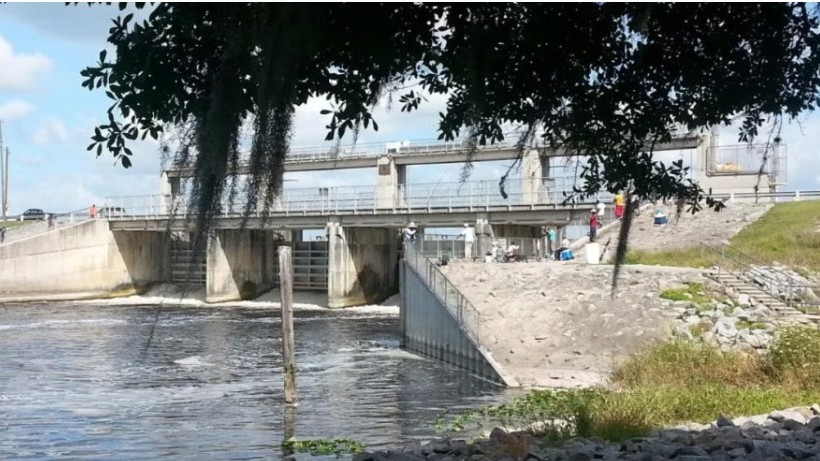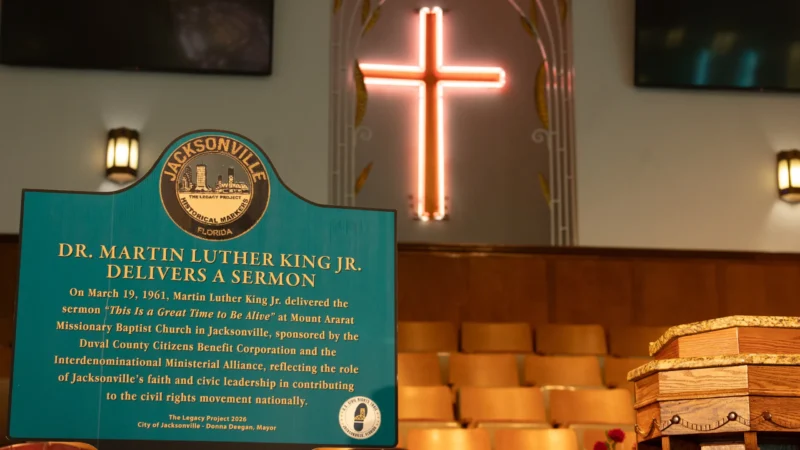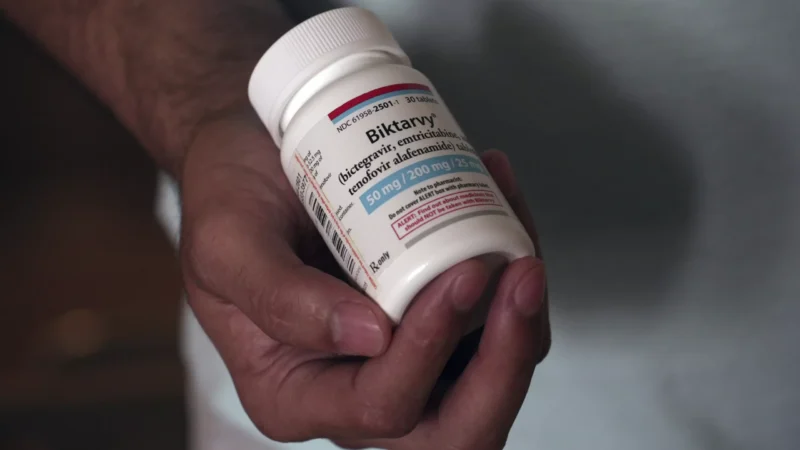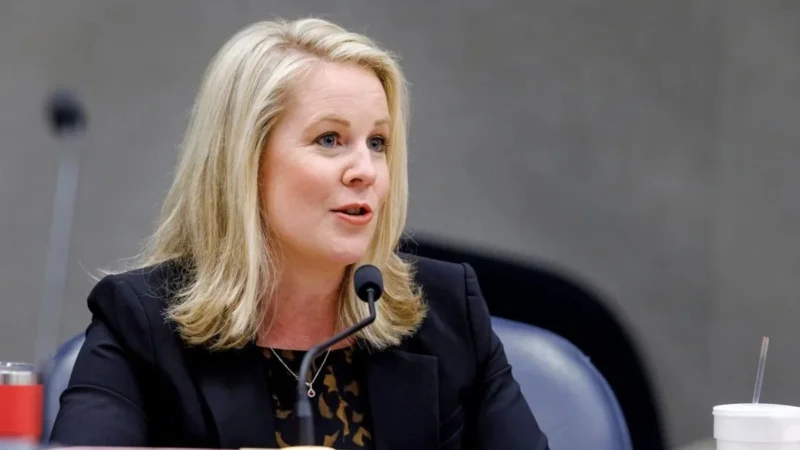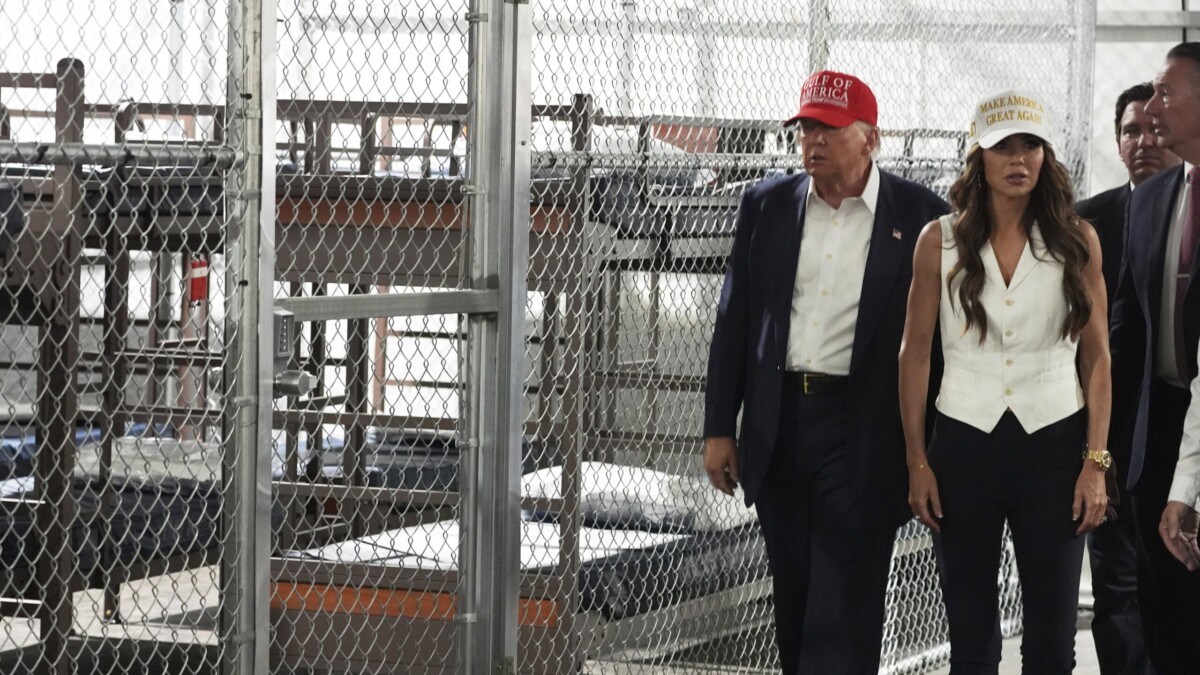A decades-long fight to remove the Rodman Dam in Putnam County suffered yet another defeat Monday when Gov. Ron DeSantis vetoed money set aside by lawmakers in the state budget to kickstart the project, which supporters say could have created millions in economic benefits to Northeast Florida and provided much-needed environmental relief to the St. Johns River.
The revamped effort to garner support elevated the voices of sportsmen and business leaders over traditional environmental activists and employed professional lobbying services — in hopes of appealing to a conservative governor. But removing the dam once again proved to be one of the most intractable environmental issues in Florida, one that has flummoxed governors, federal bureaucrats, political operatives and activists for decades.
“The reality is the governor sees the value of retaining the Rodman Dam and sees past the rhetoric that a lot of people want to spew,” said Steve Miller, president of Save Rodman Reservoir, a nonprofit whose membership pressured DeSantis with calls and letters in defense of the Rodman Dam in recent weeks.
“We’re happy, but we know the battle isn’t over. Hopefully we can get some things into place that take away the argument that (removing the dam) is better for the environment, because everything I looked at says it’s not.”
Removing the Rodman Dam, formally known as the Kirkpatrick Dam, which was built in the 1960s as part of the ill-fated Nixon-era Cross Florida Barge Canal project, has long been a sticky topic in Florida politics. It would drain the 9,400-acre Rodman Reservoir that has become a treasured natural resource and trophy fishery that Putnam County residents say is integral to their local economy and way of life.
Defended by ordinary citizens, anglers and powerful North Florida legislators alike over the years, the Rodman Dam has endured public campaigns and lawsuits from environmental groups and proposals from federal agencies to tear it down. Former Govs. Lawton Chiles and Jeb Bush supported its removal. Even Susie Wiles, a formidable figure in Florida politics before becoming President Donald Trump’s chief of staff, couldn’t close a proposed deal she brokered in 2015 between environmentalists and Jacksonville Port Authority boosters to remove the dam.
Still, the latest effort to restore the Ocklawaha River appeared to be the most promising in years
The Great Florida Riverway Trust, a coalition of business leaders and sportsmen, emerged as the new leading voice of the Ocklawaha River restoration, spearheading an influence campaign in Tallahassee that persuaded lawmakers to include $6.25 million in this year’s state budget that would be spent to create a plan to remove the dam by the end of 2026. Traditional environmental voices stood down, recognizing their limited reach in Tallahassee.
While DeSantis included $1.3 billion aimed at restoring the Florida Everglades and improving water quality in South Florida, he vetoed the money for the Rodman Dam removal, one of hundreds of projects worth a total of $576 million that he stripped from the budget. The decision comes a year after DeSantis vetoed $500,000 that would have commissioned a study by the University of Florida to explore the environmental and economic benefits of restoring the Ocklawaha River.
“Science and common sense will prevail over false narratives, and we’ll continue to fight for this until it’s done,” said Evan Tucker, a board member for the Great Florida Riverway Trust.
“Based on conversations with the governor’s office, we’re encouraged that there’s a pathway forward for the restoration of the Ocklawaha River, and we’re looking forward to working with this administration, and even the next administration, to make it happen.”
Reframing the issue
During this year’s legislative session, the Great Florida Riverway Trust approached the Ocklawaha River restoration with a fresh political approach, touting it as a transformational project that carried tremendous economic, recreational and environmental upside.
Draining the reservoir would open 7,400 acres of flooded forestland and revive 20 springs trapped beneath the reservoir’s surface. A private study commissioned by the trust estimated that restoring the river, which included adding improved boating and shoreline access projects, would cost $95 million and create $136.1 million in economic benefits over the next 20 years.
The study also concluded that reviving the springs and restoring the Ocklawaha River’s flow could alleviate many of the issues facing the St. Johns River, like an increase in salinity levels, declining water quality, and a die-off of aquatic vegetation that serves as a critical fish habitat.
The trust hired Capital City Consulting, a leading lobbying firm, to sway influential lawmakers. Environmental groups, long the leading voice of the issue, assumed a supporting role in the background, while the trust sought to reframe the constituency in favor of the Ocklawaha River restoration as widespread and bipartisan.
“All of the (environmental groups) have been at odds with the governor and the Legislature, and it doesn’t work when you’re at odds,” said Margaret Spontak, executive director for the Great Florida Riverway Trust. “You have to go ‘big tent.”… We are trying to be more gentler and pragmatic, but also showing people what they can gain, not just what they’ll lose.”
While fisherman have historically been vehemently opposed to the effort, the trust emphasized the support the project had from anglers in the St. Johns River.
“The traditional framing seemed to be ‘sportsman vs. environmentalists,’ and there was a different story that needed to be told,” said Tucker, who also co-organizes the Cowford Redfish Tournament, a popular Jacksonville fishing event that raises awareness for the Ocklawaha River restoration. “We’re dying a slow death, similar to the Everglades, and we feel the biggest thing we can do is to get more freshwater into the river.”
After lawmakers secured funding in the budget, there was growing optimism that the Rodman Dam’s days were numbered.
In the weeks leading up to DeSantis’ budget decision, Tucker secured a private meeting with the governor to make his case for the river restoration.
Even Miller, the president of the Save the Rodman Reservoir, said before DeSantis’ decision that the issue appeared to have a newfound momentum.
‘Not about the fish‘
Miller says those who believe his group is simply defending their favorite fishing hole at the expense of the environment have gravely misunderstood what’s important to Putnam County.
After moving to Orange Springs in the 1980s, Miller grew up fishing, hunting and camping on the Rodman Reservoir. He and other defenders of the Rodman Reservoir harbor a deep mistrust of the “outsiders” who have tried to dismantle the dam over the years, as well as doubts about the real-life environmental benefits of removing the dam.
Miller says the reservoir serves as an important filter of runoff pollution that could exacerbate algae blooms if it were to flow freely into the St. Johns River, an issue that has been both acknowledged and challenged in various scientific reports that support the Ocklawaha River restoration. Why risk another man-made unintended consequence and destroy a valuable resource that is home to a vibrant mix of wildlife, including manatees, migratory and resident birds — and yes, trophy-class fish?
“You have a bunch of people who grew up in the woods and love living in the woods and don’t want to see it turned into an extension of Nassau, St. Johns and Duval County,” Miller said. “You’ve got two generations who experienced the reservoir as kids, and now they see their kids camping out there with their kids. That’s what they’ve always known; they see eagles flying and see manatees in the reservoir despite people saying they can’t get in.
“The bass fishing is just a side effect of everything that’s going on there.”
This story is published through a partnership between Jacksonville Today and The Tributary.


